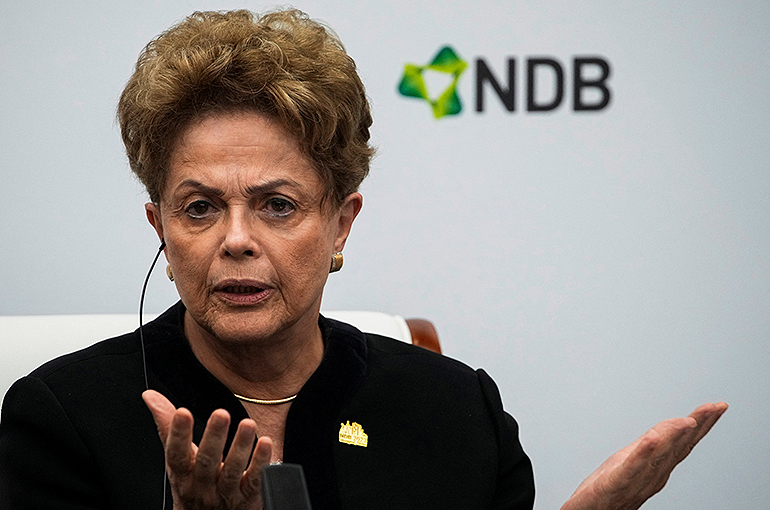 New Development Bank to Offer More Financing in Local Currencies Including Chinese Yuan, President Says
New Development Bank to Offer More Financing in Local Currencies Including Chinese Yuan, President Says(Yicai Global) May 31 -- New Development Bank will raise the share of project financing denominated in the currencies of its member nations, which include China, Russia and Brazil, to meet the demand of developing countries and emerging economies, the lender’s new president said.
New Development Bank’s priorities are to expand membership and provide more financing services in local currencies, Dilma Rousseff, who took office last month, said at the bank’s eighth annual meeting in Shanghai yesterday. Local currency financing represented 21.5 percent of the bank’s portfolio as of the end of the first quarter and the goal is to raise the figure to 30 percent.
The bank issued CNY8.5 billion (USD1.2 billion) in Panda bonds in China’s interbank bond market on May 29, the highest amount of yuan-denominated bonds that it has ever released. The money raised will be used in infrastructure construction and sustainable development projects in the bank’s member countries.
“In order to support our operations, New Development Bank seeks to increase its presence in the capital markets of our member countries by issuing and lending in local currencies, including the China interbank bond market," said Leslie Maasdorp, vice president and chief financial officer of the Shanghai-based lender.
As a founding and host country of New Development Bank, China has always supported the development of the bank, Chinese Finance Minister Liu Kun said. New Development Bank should be innovative in developing financing approaches and loan tools to meet the diversified demands of its member nations and help them with sustainable development, he said.
New Development Bank was formed by BRICS, an emerging-economy group made up of Brazil, Russia, India, China and South Africa, in 2015. Bangladesh, Egypt, the United Arab Emirates and Uruguay joined in 2021.
New Development Banks approved 98 projects with a total investment of USD33.2 billion from its establishment in 2015 to the end of the first quarter. Twenty four of these projects are in China with an investment of around USD9 billion.
Editors: Dou Shicong, Kim Taylor